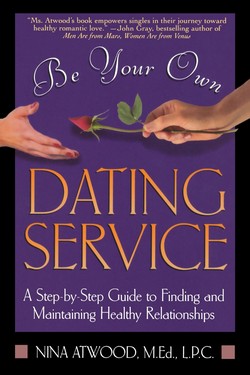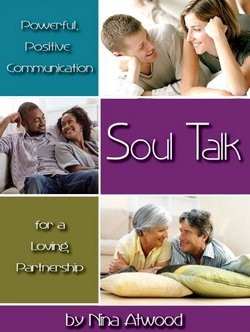The Importance of Closure With Past Relationships
By Nina Atwood
By Nina Atwood
My boyfriend was cheating on me and after confronting him he won’t admit to being unfaithful (says he’s done nothing wrong). Why is it so important to me to hear the truth from him? There is someone special in my life now but things feel so unfinished with the ex and I’m carrying all this baggage (insecurity, suspicions, jealousy) into my new relationship. How do I rid myself of all this hate and resentment? How do I start trusting again? – Holly
I hear several things that are getting in the way of you getting on with your life. One is that it sounds like you’re taking it personally that your boyfriend cheated on you. Someone else’s infidelity, no matter what they may say, is always, always about them. It was his choice to go outside the boundaries of the relationship, for whatever reason. Realize that his choice does not reflect on you or your worthiness or attractiveness in any way, but rather on his inability to have integrity in a relationship. You may feel sad about that (because he broke your bond and the relationship was lost), but hatred and resentment only hurts you. That’s like taking poison and waiting for someone else to die.
Why hate him for cheating himself out of a great relationship with someone special? It’s too bad he did that, but it’s not worth you robbing yourself of the opportunity to go forward with someone new.
Secondly, you’ll probably never get the real story from him, and you’re only draining your own energy by obsessing about that. Do whatever you need to do to rid yourself of that poison: Write letters that you don’t mail, yell and scream at an imaginary him, write in your journal, and so on. Sometimes I tell clients to write an imaginary script: You and he discussing what happened. This way, you can create it the way you would have wanted it to go. Write until there’s no more to say or until the anger begins to fade, whichever comes first.
Lastly, you have a misunderstanding about trust which is very common. Trust isn’t about knowing for sure that the person you’re with will always be with you, never cheat on you, and never deceive you. These things we can never know with 100% certainty.
Trust is about being self-caring and self-trusting. It’s listening to your own intuition and inner voice, and knowing when something just doesn’t feel right and being able to address your concerns. Most of all, trust is about knowing that no matter how much another person may hurt you, or let you down, or disappoint you, you’ll be okay. It’s being absolutely certain that you will take care of yourself, pick yourself up and dust yourself off, and continue down the road of your life. Trust is about being your own best friend, that when things go wrong you are always there for yourself, doing the best you know how to do with whatever life hands you.
Sounds like you’ve lost (or never had) this kind of trust, and that’s worth working on. How? Get in a support group or counseling group; build your friendship network; get involved in something that’s bigger than your daily relationship concerns (i.e., go back to school, do volunteer work, write a book, invent something). Having something in life that we feel passionate about, other than our primary partners, provides a needed sense of purpose. Your full recovery will be when you are completely self-trusting once again, and are thus strong enough to take the risk of being vulnerable with another person.
Copyright ©1997 Nina Atwood, All Rights Reserved
Reprints Only by Written Permission of Nina Atwood
Entry Filed under: Dating





